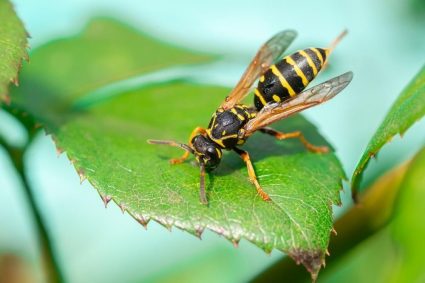
Every pet owner wants to ensure their furry friend is safe and healthy. When dogs spend time outdoors, they can encounter various types of wildlife, including squirrels. While squirrels are generally non-aggressive, they may bite in self-defense. So, what does a squirrel bite look like on a dog, and how should you respond?
A squirrel bite on a dog may appear as small puncture wounds or scratches, which can break the skin in multiple places. The initial signs of a squirrel bite include redness, swelling, discoloration, and tenderness around the wound site. If the skin is broken, there may be pus-filled abscesses and the wound may become swollen. If your dog is bitten by a squirrel, it’s essential to wash the wound thoroughly, control any bleeding, and contact your vet for further assessment and treatment.
Identifying a Squirrel Bite
A squirrel bite on a dog may appear as small puncture wounds or scratches, which can break the skin in multiple places. The bite marks are typically smaller compared to bites from larger animals, like other dogs. They can be identified by their size, shape, and depth.
Initial Signs of a Squirrel Bite
The initial signs of a squirrel bite on a dog include redness, swelling, discoloration, and tenderness around the wound site. If the skin is broken, pus-filled abscesses can form, and the wound may become swollen.
Potential Diseases and Infections
Squirrels can potentially transmit diseases to dogs such as rabies, leptospirosis, and Lyme disease. Symptoms of these diseases include fever, vomiting, diarrhea, loss of appetite, increased thirst, and changes in urination.
Long-Term Effects and Complications
The primary concern with a squirrel bite is the risk of infection due to bacteria introduced into the dog’s skin during the bite. This can lead to bacterial infections, which if left untreated, can cause serious health issues.
Preventing Squirrel Bites
To prevent squirrel bites, supervise your dog when outdoors, train your dog to respond to commands, use squirrel repellents, install barriers, keep your yard clean, and have a pet deterrent present.
What to Do If Your Dog Is Bitten by a Squirrel
If your dog is bitten by a squirrel, it’s essential to wash the wound thoroughly, control any bleeding, and contact your vet for further assessment and treatment.
Treating a Squirrel Bite at Home
Before reaching the vet, wash the wound immediately under running water, clean it with soap, apply alcohol or antibiotic ointment, dry the wound, and cover it with sterile gauze or a clean cloth.
Seeking Professional Help
If your dog has been bitten by a squirrel, you should seek professional help from a veterinarian. They will assess the wound, provide further treatment, and may prescribe antibiotics or other medications.
To conclude, while squirrel bites can be unsettling, they are generally not life-threatening to dogs. However, it’s crucial to take appropriate action immediately after a bite to prevent infection and ensure your dog’s well-being. Always consult with a veterinarian if your dog has been bitten by a squirrel or any other wild animal.
Frequently Asked Questions
How long does it take for a squirrel bite on a dog to heal?
The healing time of a squirrel bite on a dog can vary depending on the severity of the wound and the dog’s overall health. Generally, minor wounds may heal within 1-2 weeks with proper care. However, severe wounds or infections might take longer and require veterinary treatment.
Can I use my regular first aid kit to treat a squirrel bite on my dog?
Yes, you can use a standard first aid kit to treat a squirrel bite on your dog. The kit should include supplies such as soap, clean water, antibiotic ointment, and sterile gauze or a clean cloth for wound dressing. However, always consult a veterinarian for proper wound care and follow up.
What type of squirrel repellents are safe for dogs?
There are several squirrel repellents available that are safe for dogs. These include natural repellents like essential oils (peppermint, cinnamon, etc.), ultrasonic repellents, and commercial squirrel deterrent sprays. Always ensure that the repellent is pet-friendly and non-toxic.
What are some signs that the squirrel bite on my dog is infected?
Signs of infection from a squirrel bite on a dog can include increased redness or swelling, pus or discharge from the wound, a foul smell, fever, lethargy, decreased appetite, and changes in behavior. If you notice any of these signs, seek veterinary help immediately.
Can a squirrel bite cause behavioral changes in my dog?
Yes, a squirrel bite can cause behavioral changes in your dog, especially if the wound is painful or the dog is feeling unwell due to an infection or disease transmitted through the bite. These changes can include lethargy, aggression, or changes in eating or drinking habits. It’s important to monitor your dog closely if it has been bitten by a squirrel and seek veterinary help if needed.









